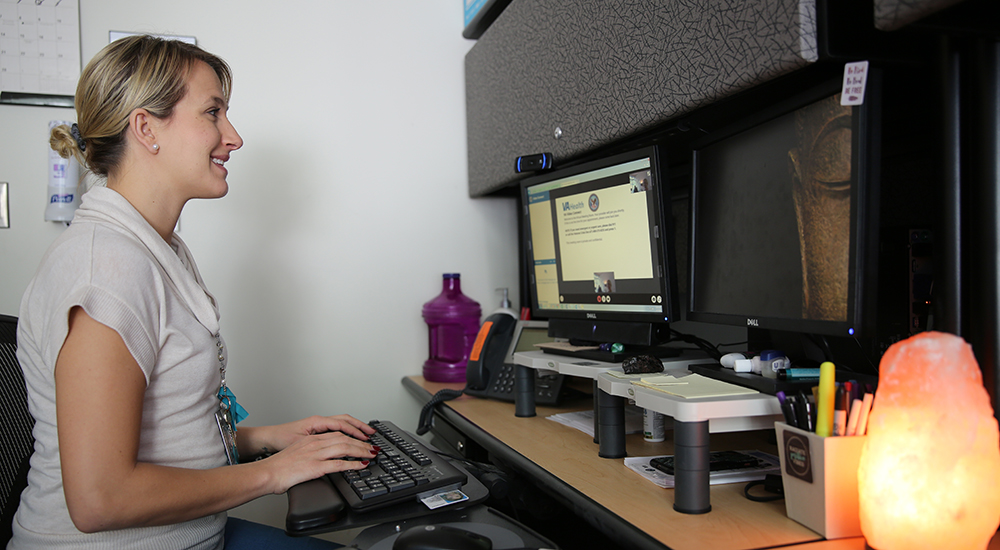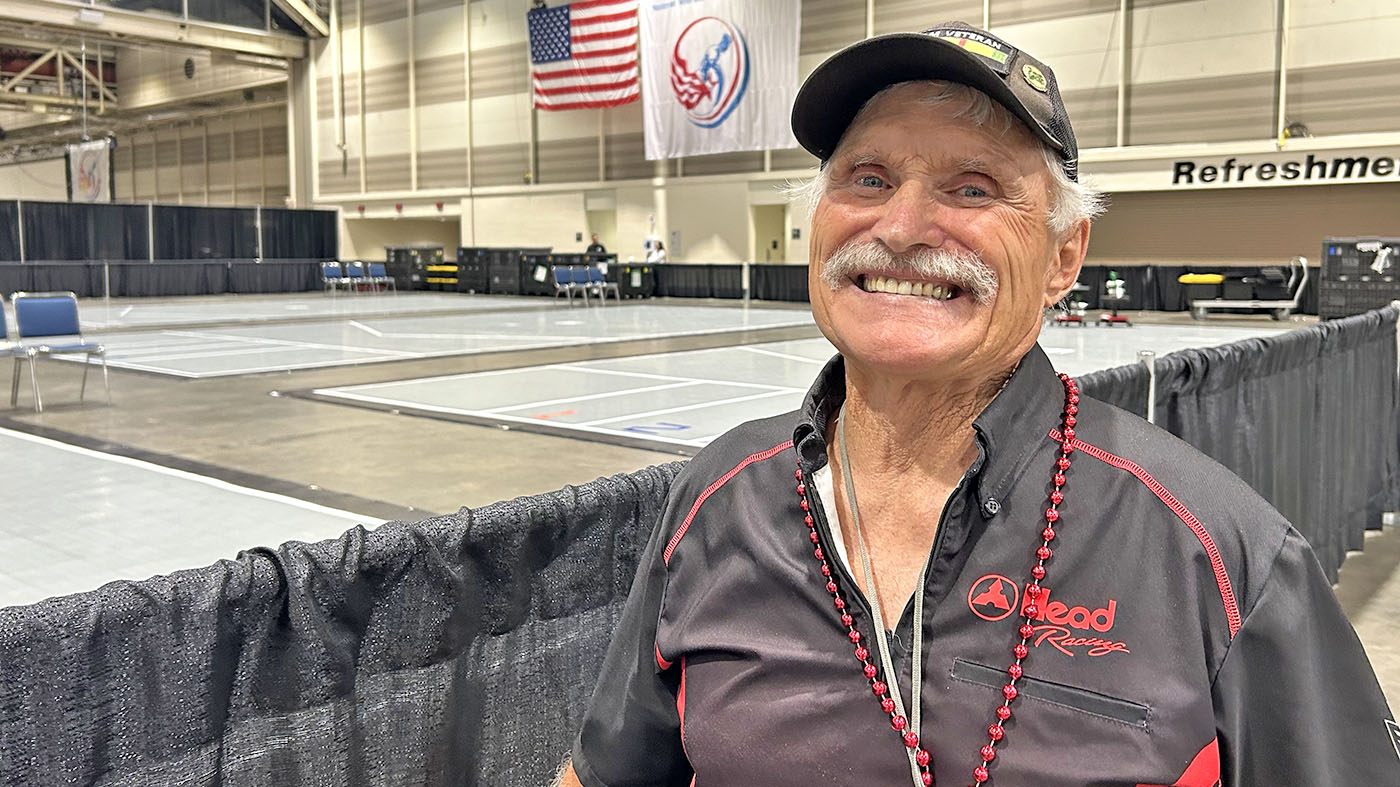The VA Southern Nevada Healthcare System is expanding therapy services to victims of military sexual trauma by using some of the latest advancements in telehealth technology.
In an effort to assist those unable to travel for face-to-face MST counseling sessions, clinical psychologists now provide therapy to Veterans using smartphones, tablets and computers with webcams in their homes. “We highly recommend in-person MST therapy whenever possible, but Veterans cannot always make the trip,” said Dr. Nicole Anders (pictured above), a clinical psychologist who oversees the MST program.
“This option, while not the preferred method to counsel those with MST-related needs, opens more therapy doors for those in need and is better than no treatment at all.”
Veterans who want to use the in-home telehealth counselling must first receive a referral from their provider. Once a request is approved, he or she receives an emailed link to join an online session.
Overcoming the stigma
According to VA statistics, one in four women and one in one-hundred men report they have experienced sexual assault or repeated sexual harassment during military service. One hurdle that trauma counselors must overcome is the stigma surrounding sexual assault, especially among men. Telehealth has the potential to help gradually introduce MST victims to therapy and build trusting relationships with counselors.
“We don’t realize how much our lives can be affected by the secrets we keep,” Anders said. “If we are feeling emotionally upset it can affect our physical health and our relationships. Mental health is so important and is connected to all aspects of our lives. It’s very important to find a safe space to open up about issues. Time does not heal all wounds and it won’t go away without some work. But we are here to help.”
Veterans who have experienced MST related issues can get assistance by seeing their primary care provider and requesting a referral for face-to-face or telehealth counseling sessions.

Topics in this story
More Stories
Veteran Hank Ebert is a bit of a superstar in the National Veterans Wheelchair Games. He has been attending since 1993.
Embrace simplicity and balance during the holiday frenzy! Discover the beauty of self-care and a nourishing meal in this week's #LiveWholeHealth practice.
Monica Diaz, executive director of the Homeless Programs Office, discusses the progress made in housing Veterans in 2024.







I think this program needs to be nationwide. It is tough overcoming stigma issues for mental health for many people. The idea of using telehealth technology to provide therapy adds an extra layer of comfort for the patient. They do not have to physically go to the office and can get treatment right from wherever they are. If this program was available nationwide veterans could receive mental health services 24 hours a day because someone across the country could always be on call while the patient could maintain regular sessions with a therapist of his/her choice.
Please help promote the idea of mental health by telehealth for all veterans no matter where he/she may live. This service could save lives and really help others. Depression and anxiety issues can cause a patient not to want to leave the house or bother going to therapy. But with access through telehealth there would be one less obstacle to overcome.
Take it from a person who because of a medical disability has issues going to see doctors all the time.
is this program available to Veterans living overseas?